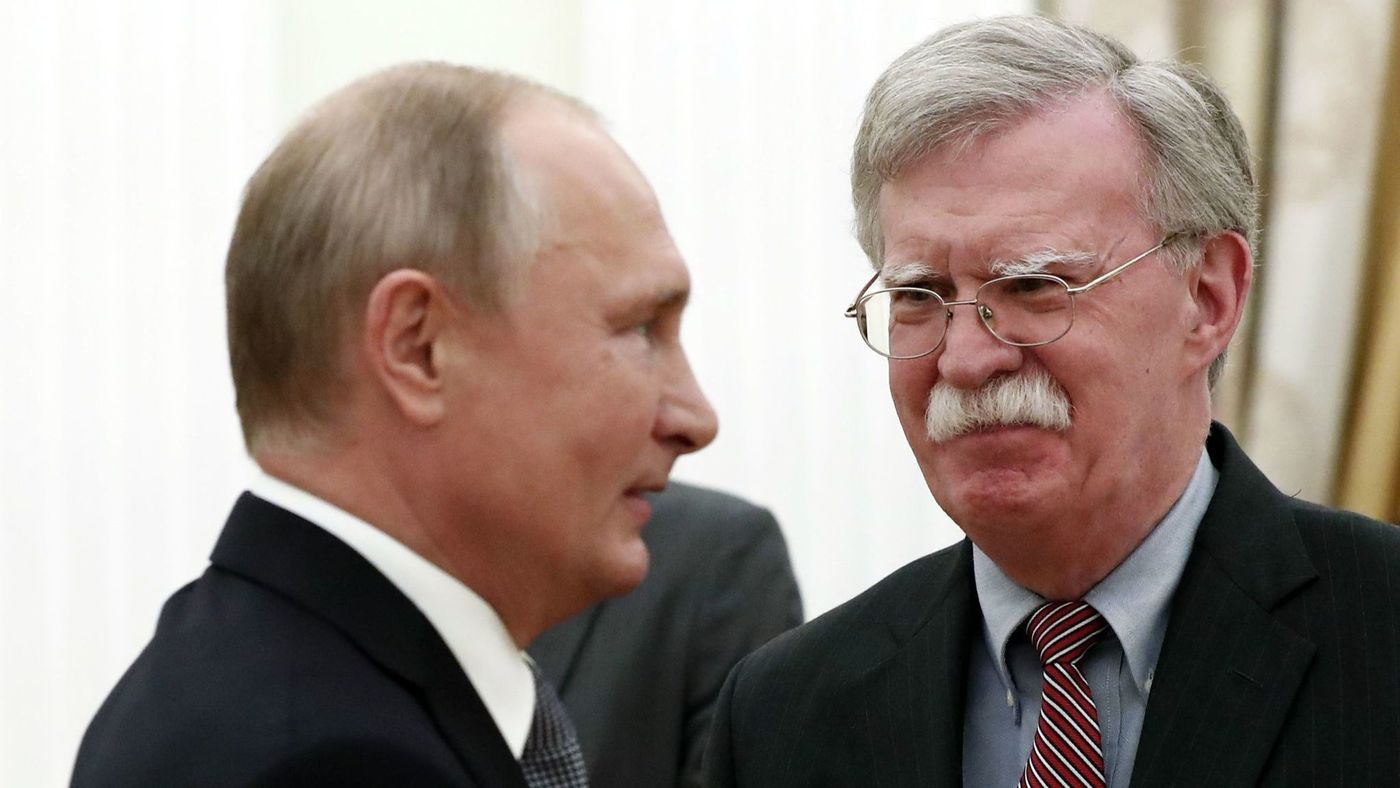The world could be on the threshold of a new arms race if the United States walks away from the Intermediate-Range Nuclear Forces (INF) treaty – a decades-old guarantor of peace between two nuclear powers, namely the U.S. and Russia.
Following an hour and a half meeting with Russian President Vladimir Putin at the Kremlin, U.S. President Donald Trump’s National Security Advisor John Bolton, who was on a two-day visit to Moscow, confirmed that Washington is planning to leave the INF, saying Moscow has violated its terms by deploying strategic missiles in Europe.
"This is a very important issue, and President Trump said so," RIA Novosti reported Bolton as saying during a press conference held Tuesday, adding that no official decision had been made just yet.
A few days earlier, Trump told reporters that the U.S. is to withdraw from the treaty, insisting that the Russians have been "violating it for many years" and are developing prohibited cruise missiles.
The INF treaty was a major milestone in arms control in the midst of the Cold War between the U.S. and the Soviet Union. The treaty required the destruction of both nations’ ground-launched ballistic and cruise missiles with ranges of between 500 to 5,500 kilometers (300 and 3,400 miles).
Although Russia has repeatedly denied violating the treaty for what Bolton says has been six years, the tension between the two countries has continued to grow with both sides threatening to upgrade their nuclear capacities. Putin expressed a sense of surprise that, following a presidential summit in Helsinki in July, the Trump administration is now looking to pull out of the INF treaty.
"Certainly, it would be useful to continue the direct dialogue with the U.S. president, primarily on the sidelines of international events that will take place soon, for example, in Paris," Putin was reported to have said following his talks with the Bolton.
Bolton announced at the press conference that Trump would look forward to meeting with Putin in Paris on November 11, to celebrate the 100th anniversary of the end of the First World War.
Kremlin spokesman Dmitry Peskov has accused the U.S. of making the world a more "dangerous place," saying that the collapse of the 1987 pact will raise the possibility of a new arms race.
"It means that the United States is not disguising but is openly starting to develop these systems in the future, and if these systems are being developed, then actions are necessary from other countries, in this case, Russia, to restore balance in this sphere,” Peskov alleged.
Despite Russian denials of violating the terms of the INF treaty, the U.S. insists that Russia has a new medium-range missile called Novator that has a flight range outside the permissible limits of the treaty. The U.S. Ambassador to NATO Kay Bailey Hutchison has threatened Russia with counter-measures by the U.S. if Moscow continues to develop a missile force that can be used against NATO countries.
"At that point, we would be looking at the capability to take out a (Russian) missile that could hit any of our countries," she said according to the BBC, speaking ahead of a meeting of NATO defense ministers earlier this month.
Meanwhile, Russia is not the only country that has played into Trump's calculation for possibly pulling out of the INF treaty.
At the press conference in Moscow, John Bolton noted that "a Cold-War bilateral treaty in a multipolar world" did not apply to China. China's missile force threatens U.S. military interests in the Asia-Pacific region. Since China is not a signatory to the INF treaty, it means that it is able to develop the weapons that the U.S. is legally prevented from deploying due to the treaty; in case of a high-end conflict, U.S. naval surface combatants in the region would be defenseless. Leaving the INF treaty would allow the U.S. to compete with China and build up its military power to be on par.
According to the Senate testimony of the former head of the U.S. Pacific Command Admiral Harry Harris, the Chinese People’s Liberation Army now has the largest and most diverse missile force in the world, with an inventory of more than 2,000 ballistic and cruise missiles.







 The number of evacuees from flooded areas in Kazakhstan has reached 97,852 people, including about 32,856 children since March 27.
The number of evacuees from flooded areas in Kazakhstan has reached 97,852 people, including about 32,856 children since March 27.
 The Islamic holy month of fasting, Ramadan comes to an end this week with the celebration of a joyous festival called Eid (meaning “festival” in Ar...
The Islamic holy month of fasting, Ramadan comes to an end this week with the celebration of a joyous festival called Eid (meaning “festival” in Ar...
 Azerbaijan officially unveiled the logo for the upcoming 29th session of the Conference of the Parties to the United Nations Framework Convention o...
Azerbaijan officially unveiled the logo for the upcoming 29th session of the Conference of the Parties to the United Nations Framework Convention o...



